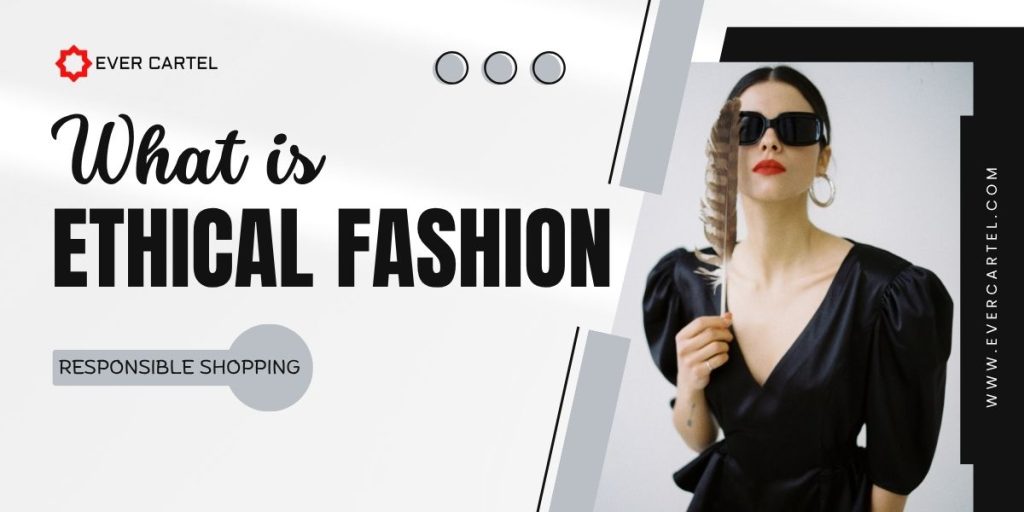Fashion is more than just what you wear — it’s also how what you wear is made. In 2025, ethical fashion is no longer a niche concern; it’s a growing movement driven by consumers who care about human rights, animal welfare, and environmental sustainability. If you’re wondering what ethical fashion really means and how to support it, this guide will walk you through the essentials, from what defines it to how you can shop more consciously.
What Does Ethical Fashion Actually Mean?
At its core, ethical fashion is about doing the right thing across every stage of clothing production — from sourcing materials to manufacturing, labor practices, packaging, and distribution. It focuses on people, planet, and animals.
Ethical fashion doesn’t just ask, “Is this shirt sustainable?” — it asks:
- Were the workers paid fairly?
- Were animals harmed in making this?
- Were natural resources used responsibly?
- Can I trace the garment’s journey?
💡 Ethical fashion means clothing made with respect for workers, animals, and the environment — throughout the entire supply chain.
It goes beyond trendy “green” labels. Real ethical fashion is transparent, traceable, and committed to doing good — not just looking good.
The 4 Core Pillars of Ethical Fashion
| Pillar | What It Means |
|---|---|
| Fair Labor | Safe working conditions, fair wages, no forced or child labor |
| Sustainable Sourcing | Organic, recycled, or low-impact materials; water and energy conservation |
| Transparent Supply Chain | You can trace the product’s journey from fiber to finished garment |
| Animal Welfare | No animal cruelty; vegan leather, wool alternatives, and cruelty-free practices |
These four values work together to redefine how clothing should be made in a global industry that often prioritizes profit over ethics.
Ethical vs. Sustainable Fashion — What’s the Difference?
Although often used interchangeably, ethical and sustainable fashion aren’t exactly the same:
- Sustainable fashion emphasizes the environmental impact — renewable materials, carbon footprint, pollution control, etc.
- Ethical fashion focuses on the moral practices — how brands treat workers, animals, and communities.
They often overlap, and the best brands aim to be both sustainable and ethical.
Why Ethical Fashion Matters in 2025
In recent years, global awareness about the dark side of fast fashion has exploded. Social media, documentaries like The True Cost, and reports on factory collapses have opened millions of eyes to the damage cheap clothing causes.
Here’s why ethical fashion matters more than ever:
- Fast fashion exploits garment workers, often in unsafe or underpaid conditions
- Synthetic fabrics contribute to microplastic pollution in oceans
- Textile production is the second-largest industrial polluter after oil
- The average American throws away 81 pounds of clothing each year
- Gen Z is actively shaping the market through conscious buying habits
When you support ethical fashion, you’re voting for a better system — with your wallet.
Common Myths About Ethical Fashion (Debunked)
Let’s clear up a few misconceptions:
- “It’s too expensive.”
→ While some ethical brands have higher price tags, they offer better quality and durability. Plus, secondhand and small local brands offer ethical options for any budget. - “It’s just a trend.”
→ Ethical fashion has gone mainstream, especially among young consumers. It’s not a fad — it’s a movement. - “It’s hard to find ethical brands.”
→ Tools like Good On You rate thousands of brands by ethics and sustainability.
How to Shop Ethically (Even on a Budget)
You don’t need a huge budget to shop consciously. Here’s how to get started:
- ✅ Check for third-party certifications (Fair Trade, GOTS, OEKO-TEX, B Corp)
- ✅ Buy secondhand from thrift stores, online platforms (Depop, ThredUp, Poshmark)
- ✅ Choose quality over quantity (build a capsule wardrobe that lasts)
- ✅ Support local, indie, or slow fashion brands
- ✅ Avoid impulse buying and fast fashion hauls
- ✅ Ask brands directly about their sourcing and labor practices
The most ethical garment? The one you already own and take care of.
10 Ethical Fashion Brands Worth Knowing (U.S. Based)
| Brand | What Makes Them Ethical |
|---|---|
| Pact | Organic cotton, Fair Trade Certified |
| Everlane | Radical pricing transparency, factory disclosures |
| Reformation | Sustainable fabrics, carbon-neutral goals |
| Girlfriend Collective | Recycled materials, size inclusivity |
| ABLE | Women-focused workforce, living wages in supply chain |
| People Tree | Fair Trade pioneer, eco-friendly dyes and fibers |
| Patagonia | Activist brand, Fair Trade Certified, organic cotton |
| Outerknown | Ocean-safe materials, verified factory partners |
| Christy Dawn | Regenerative farm-sourced cotton, deadstock fabric |
| For Days | Closed-loop system, 100% recyclable clothing |
Each of these companies has a public commitment to labor rights, environmental ethics, and sustainable business models.
Final Thoughts — Fashion With a Conscience
Ethical fashion is not about being perfect. It’s about being intentional — knowing that your clothes don’t have to come at the cost of someone else’s health, dignity, or future.
Small choices add up. Choosing fewer, better pieces. Supporting brands that pay fair wages. Asking questions. Repairing and re-wearing.
In 2025, ethical fashion isn’t just a movement — it’s the new standard for conscious living.
Ethical fashion is clothing made in ways that respect workers, the environment, and animals. It emphasizes fair wages, safe conditions, sustainable materials, and transparency. Unlike fast fashion, it values people and planet over profits.

